In Dossier No. 39 Lorenzo Bernasconi discusses how Wokeism has deconstructed the ties between culture and identity, and how it can be defeated through strong thought based on the primacy of rationality.
CLICK HERE TO DOWNLOAD THE DOSSIER (2 MB)
EXECUTIVE SUMMARY
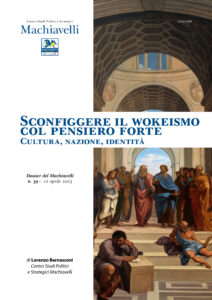
La copertina del dossier
-
- Western civilization has always considered the culture-identity pair inseparable, until the advent of "Wokeism" which claims to "deconstruct" our cultural roots.
- Many cultural activities have an identity function in the sense that they cyclically reaffirm membership in a community.
- Woke's attempt to transcend the exclusivity of Western culture resulted in a resurgence, in place of national identity, of particular identities (and dangerously prone to generating internal conflict) that the nation state had managed to overcome, such as the ethnic identity.
- The deconstruction of individual identities has led Wokeism to redefine gender identity as pure self-construction of the psychic subject. In reality, identity rests on material substrates independent of the subject's will: its genetic background and social context.
- Wokeism, claiming a false ethical-epistemic neutrality, arrogates the right to define the perimeter of legitimate ideas. It is not an alternative cultural proposal, but the only allowable one.
- A presupposition of Wokeism is weak thought: by losing confidence in the rational ability to understand reality, one ends up perceiving one's own psychic dimension as the only reality. It is therefore necessary, in continuity with the Western tradition, to claim the primacy of rational thinking over emotionality.
- Conservative thinking must come out of the closet and descend into the public debate.
READ ONLINE
Dossier 39 - Sconfiggere il wokeismo col pensiero forteResearch Fellow at the Machiavelli Center for Political and Strategic Studies, formerly worked as a consultant at European Parliament, Presidency of the Council of Ministers, Chamber of Deputies and Ministry of Economic Development. M.A. in Philosophy at the Catholic University of Milan.


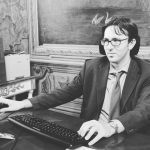
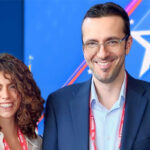
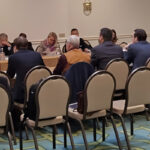

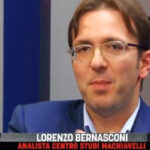

Scrivi un commento